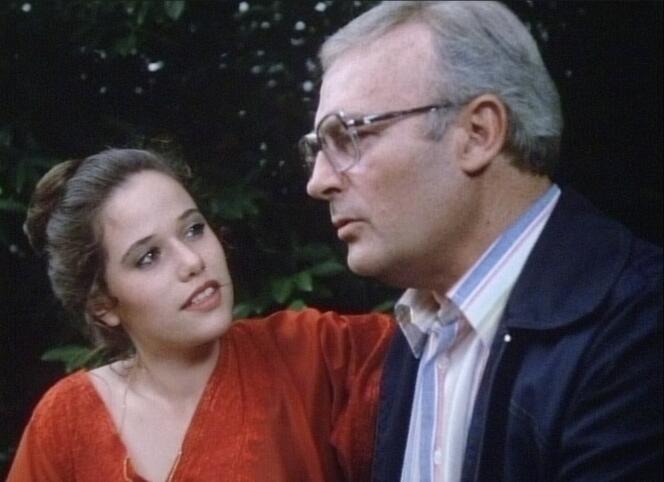We will long dream of what could have been the filmography of Lindsey C. Vickers, director of a unique and magnificent feature film which took almost forty years to reach us. After starting out on television, the man worked as an assistant director on several horror films for the production company Hammer Film. He was given the opportunity in 1981 to direct a film, The Appointment, the first part of what was to be a series of thirteen British television films produced at great expense. Vickers would have directed most of it, but the project fell through, swallowing up the cinema dreams of a promising director. Remained a very well-kept secret and VHS (for Video Home System) circulating under the radar, The Appointment owes its restoration to a group of stubborn film buffs, and its release in France to the gem scout Les Films du Camélia.
The film opens with a sumptuous prologue, a veritable poem which makes a young girl the great instigator of the supernatural. In voiceover, a police report evokes the mysterious disappearance of a schoolgirl who never returned from her music class. It is she who appears on the screen: decked out with her cello, the girl is taking a side road alone when she hears disturbing voices chanting her name, followed by a powerful breath coming from the bush which sucks her all in. whole – we will never see her again.
Three years later, here is Joanne, a young musician focused on preparing an end-of-year concert which will be given the next day. With all the lyricism in the world, Lindsey C. Vickers films a young girl’s bedroom as one would try to tour a brain: rose-tinted novels in the library, musical scores, floral wallpaper and framed portrait of Joanne with her father. In fact, he is afraid of telling her bad news: because of an important meeting, he will not be able to attend his daughter’s concert. The intensity of Joanne’s grief leaves the shadow of an Electra complex looming, which is confirmed by the mother’s jealousy.
Premonitory dream
But, already, the camera is elsewhere, distilling its venom, dilating time to its breaking point. The staging emancipates itself from the script, like a soul slipping from its carnal envelope, circulating wherever it pleases, observing daily life through a powerful feeling of tragedy. Where another would have handled the ellipse, Vickers contemplates the passage of time inside the family home, sliding along the walls, catching Joanne’s parents in their sleep, the father shaken by a premonitory dream: a pack of barking dogs, a road accident. Very quickly, reality is augmented by an invisible double background loaded with unsaid things, presentiments, buried desires, fear of death, sensations of déjà vu. The director, who we guess is hypersensitive, seems obsessed with the idea of giving shape and life to this fourth dimension which pulls the strings of reality.
You have 22.49% of this article left to read. The rest is reserved for subscribers.
